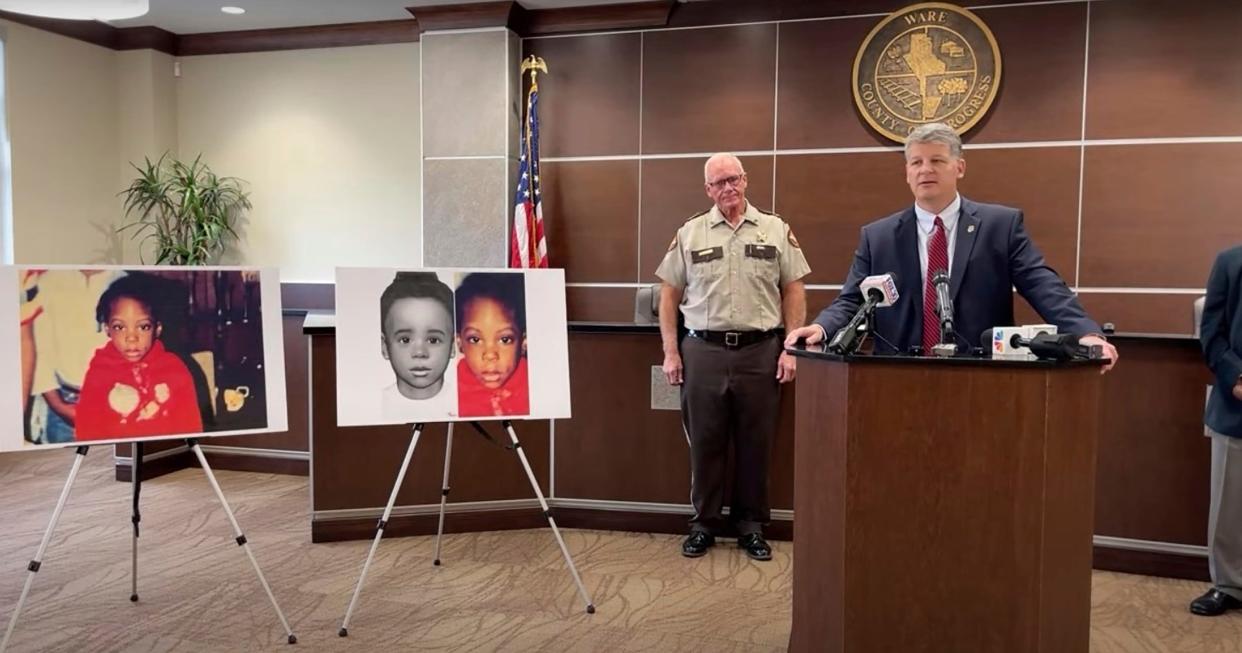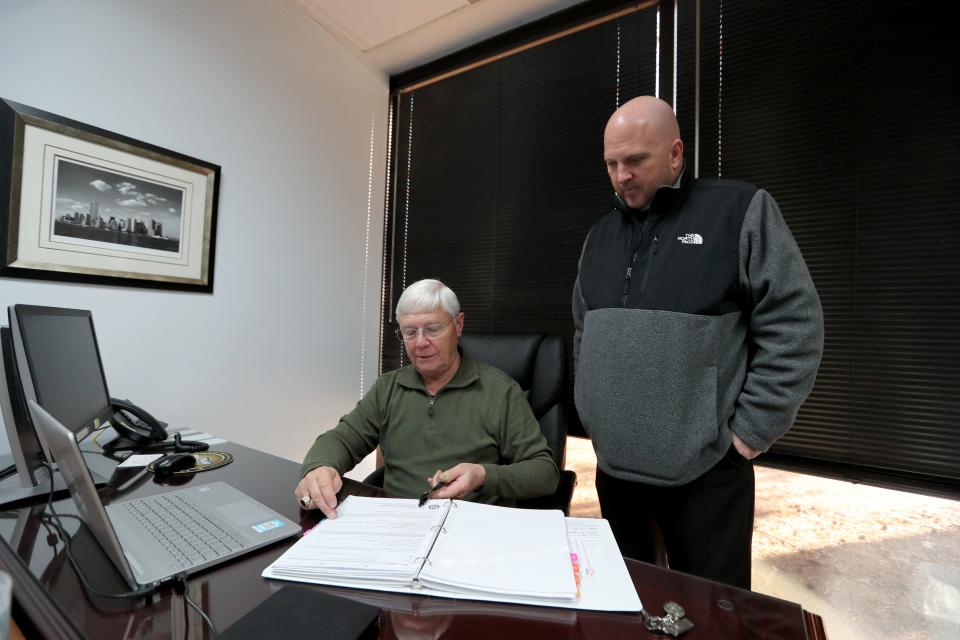How do Savannah's cold cases get solved? A lot of time and a few lucky breaks, say investigators

The Savannah Police Department (SPD) solved its first cold case since the inception of the Cold Case Unit in 2016.
On Dec. 13, 2023, a Chatham County grand jury indicted Kenneth Brown for two counts of malice murder and three counts of felony murder in connection with the 1987 bludgeoning and suffocation death of Deneen Rawls. Brown was also indicted for one count of rape.
According to the indictment, the identity of the person who committed the crime had eluded police for the 32 years that had passed between when Rawls was murdered and February 2019, when DNA evidence revealed Brown as the perpetrator.
The long-time coming resolution to Rawls' murder offers some answers to those left behind and gives some comfort to the detectives who've worked the case all these years, but it's just one of 30 to 40 cases sitting in a file drawer of one detective that still begs questions.
With today's technology, why are cold cases so hard to solve?
According to a study by the National Institute of Justice (NIJ) Cold Case Investigation Working Group (Working Group) and the Department of Justice, a case becomes “cold” when it goes unsolved for at least three years.
This same study says cold cases are getting increasingly more difficult to solve. Roughly 40% of the homicides in the United States remain unsolved. The clearance rate for homicides plunged from 78.3% in 1975 to 59.4% in 2016, a downward trend that the working group predicts will continue.
“But there is hope,” the study states. “Even as the volume of unsolved crimes continues to soar, formidable new forensic technologies that can help crack cold cases keep emerging. Thus, there is great need, as well as great opportunity, for a commitment to refocusing attention on unsolved homicides and other violent crimes.”

More: Savannah-Chatham police launch cold case squad
More: DNA evidence leads to man indicted on multiple murder counts in 1987 death
How does the SPD cold case unit operate?
City of Savannah policy limits the four SPD cold case unit investigators to under 20 hours per week, explained SPD Lt. Zachary Burdette, who oversees the unit, which is comprised of retired officers and detectives. Two of those officers have more than 10 years' law enforcement experience, one has over 20, and another has more than 30.
SPD also employs eight homicide detectives, but as Burdette explained it, "They don't have a whole lot of time to break away from their stuff to pick up on one of those [cold] cases.”
Other cases aren’t classified as “cold” by SPD, but go unsolved for years for a variety of reasons, including that the homicide detective initially assigned the case left the force.
It’s not clear how many cases the cold case unit has investigated due to the high level of turnover they have experienced, said Burdette. There have been as many as seven cold case investigators and as few as three, which makes the work slow-going.
Cold case tips arrive at the unit in a variety of ways, including through CrimeStoppers, the local chapter of a national non-profit organization that works with citizens, law enforcement agencies and media organizations to assist with solving crimes. Other times, the cold case calls family members of victims themselves to see whether any evidence has arisen since the incident.
"We’ll tell [the cold case investigators] to pull the file and go through it and just kind of look through it and see if something may have been missed, if there's something that can be done on it,” said Burdette.
A couple cold cases, in particular, still bother Burdette because he believes they are solvable.
On Sept. 21, 2016, Kevin Reid, owner of The Australian Aboriginal Art Gallery, was shot and killed on the 400 block of East Waldburg Street in an armed robbery gone wrong. A year later, in March 2017, 47-year-old Sandra Thomas, a mail carrier, died in her house on East 34th Street.
“[The Reid] case is one where it can be solved but it's going to take finding somebody who needs something in return to give you that little bit of information,” said Burdette. “A lot of the older cases, sometimes that’s what you need to get over that hump.”
More: 'Voice of the voiceless': Crime Stoppers' Brittany Herren needs your help to solve cold cases
How did SPD solve the 1987 Kenneth Brown case?
Sitting in his office at 6600 Abercorn St., SPD cold case investigator Dennis Malott leaned back in his chair and explained how he solved the Rawls case.
“This guy was not on anybody's radar,” said Malott.
As Malott describes it, Brown was sentenced to prison for five years on a burglary charge in December 1987, less than one month before Rawls' murder. On Sept. 8, 1992, Brown was charged with murder for killing a girl in Albany, Georgia, and he was sentenced to life in prison in November 1992.
The “first hit” tying Brown to Rawls’ death came in February 2019, said Malott. In May 2019, the DNA results came in for the rape kits taken at Rawls' autopsy. The results tied Brown’s DNA to the scene of Rawls’ death.
Then, Malott arranged to meet with Brown. “We had to do a whole case against this guy because he was not on the radar,” said Malott. “He denied even knowing her. All he had to do was say, 'yeah, that’s my girlfriend.”
Malott, who worked for 30 years as a police officer, including 15 years as a forensics investigator with Savannah-Chatham Metro Police Department (SCMPD) and SPD, opened up a drawer in a file cabinet and pointed towards a stack of files. Malott said he looks at between 30 to 40 cold cases annually.
“We’ll contact the family every year, write a report,” said Malott. “Hopefully we'll get a lead, sometimes we'll get leads. Sometimes ... there's nothing to do. Anything that can be done has been done. There’s nothing else.”
“I enjoy [the work],” said Malott, who then paused. “Actually, it's only fun if we solve one and it doesn't happen that often.”
Drew Favakeh is the public safety and courts reporter for the Savannah Morning News. You can reach him at AFavakeh@savannahnow.com.
This article originally appeared on Savannah Morning News: Savannah Police Department's Cold Case Unit solves its first case

